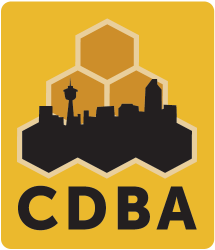-
May 18 and May 19, 2024
May 18, 2024 - May 19, 2024
9:00 am - 4:00 pm
Calgary and District Beekeepers Association (CDBA) is pleased to present an advanced beekeeping course covering bee biology and management presented by Scott Debnam (University of Montana). Dive into the fascinating world of honeybees with our in-depth course designed for beekeepers eager to deepen their understanding of bee health and sustainable practices. This course offers a rich blend of theoretical knowledge and hands-on experience, covering critical aspects of bee anatomy and their associated health challenges.
This course will educate and empower participants to make informed decisions in their beekeeping practices and advocate for pollinator-friendly environments. Join us and become a part of the solution to protect these vital creatures that play a crucial role in our ecosystem.
When
May 18 and 19, 2024
-
-
- 12-14 hours of beekeeping instruction and hands-on practice.
-
Location
Worker and Hive
4215 72 Ave SE Unit 102, Calgary, AB T2C 2G5
Cost: $395.00.
About the instructor – Scott Debnam: The University of Montana’s Organismal Biology, Ecology, & Evolution program awarded Dr. Scott Debnam his Master’s degree in Pollination Ecology in 2016 and his Doctorate in Insect Physiology in 2022. Scott is an expert on honey bee problems and pests and specializes in nest thermoregulation and the economics associated with nest thermoregulation.
For the past 10 years, he has co-instructed the University of Montana’s Online Master Beekeeping program, which received the 2019 UPCEA award for outstanding online education. He has taught over 2000 students from 22 different countries. As well as being an instructor at Amherst College, he is a co-instructor of the new Commercial Beekeeping program at UM Online.
Topics include:
-
- Bee Biology:
- Circulatory system
- Respiratory system
- Digestive system
- Apiary techniques
- Microscope overview and operations
- Nosema sampling and diagnosis using microscopy
- Foraging ecology
- Pollinator observation and counting
- Bee Biology:
